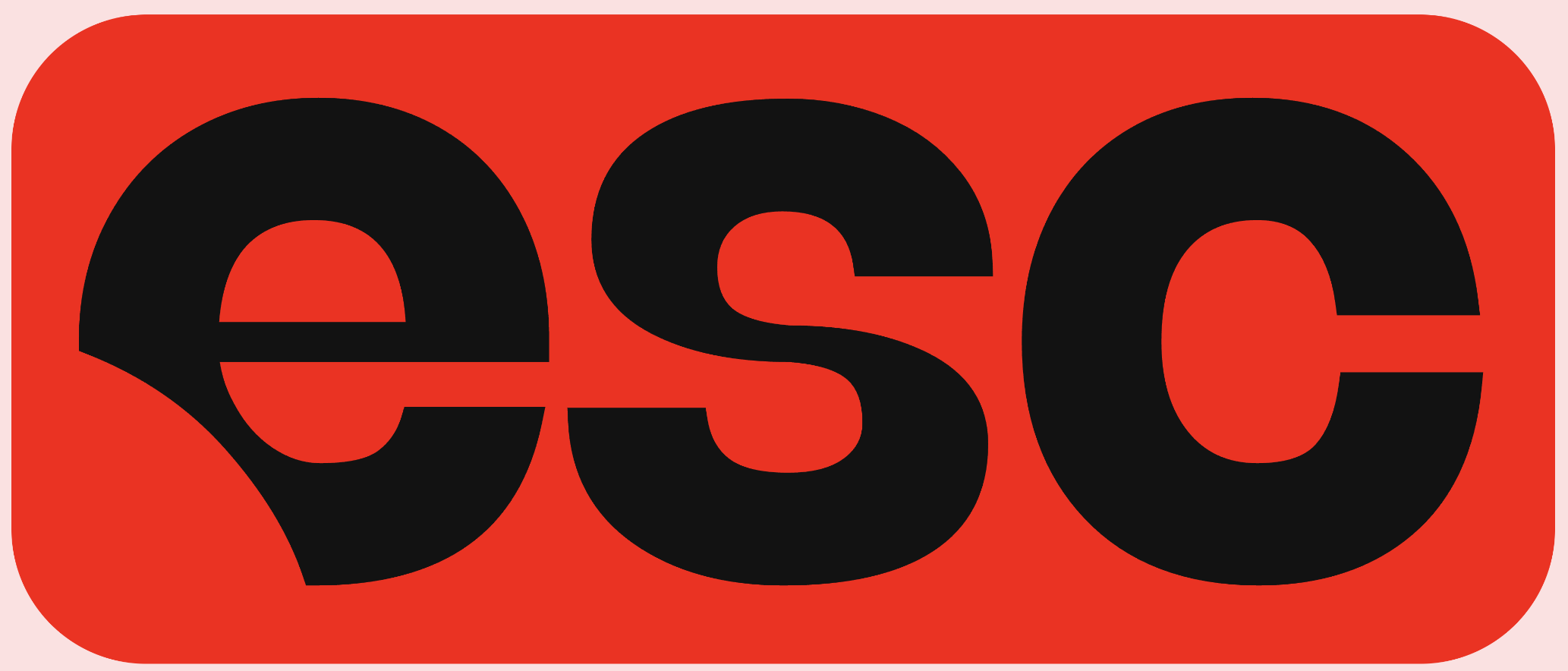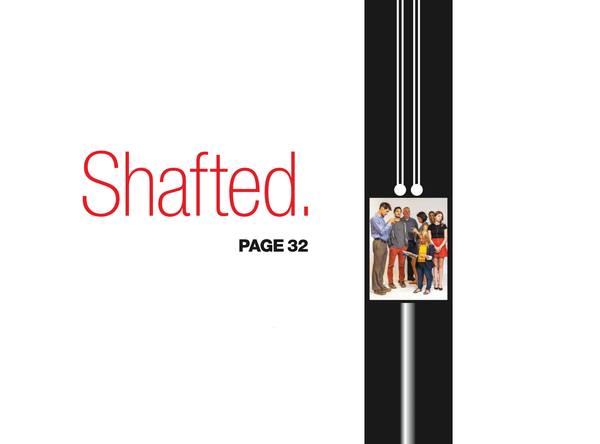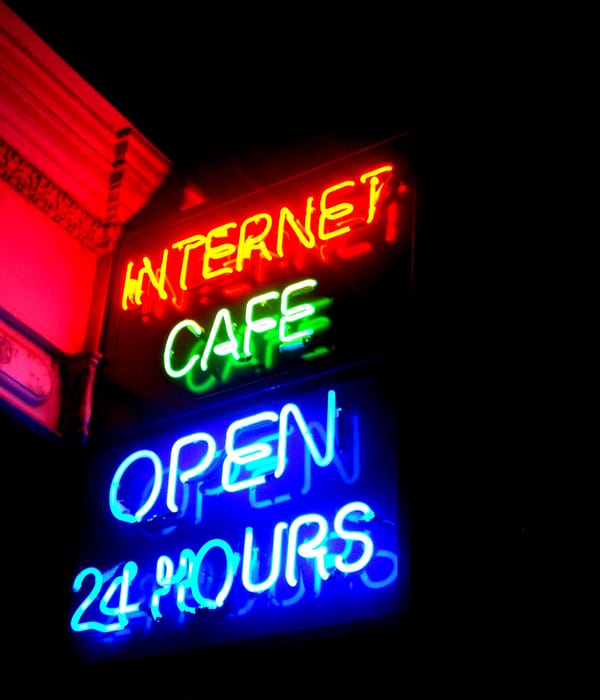The Muskologist will see you now: Paris Marx on 5 years of diagnosing Big Tech’s delusions
Silicon Valley’s sharpest critic, Paris Marx marks 5 years of Tech Won’t Save Us, telling ESC KEY .CO how he pushed through early anxiety to make the essential podcast on the subject. We set the table to discuss exiting U.S. tech, the state of criticism and one guest who made him a little nervous.
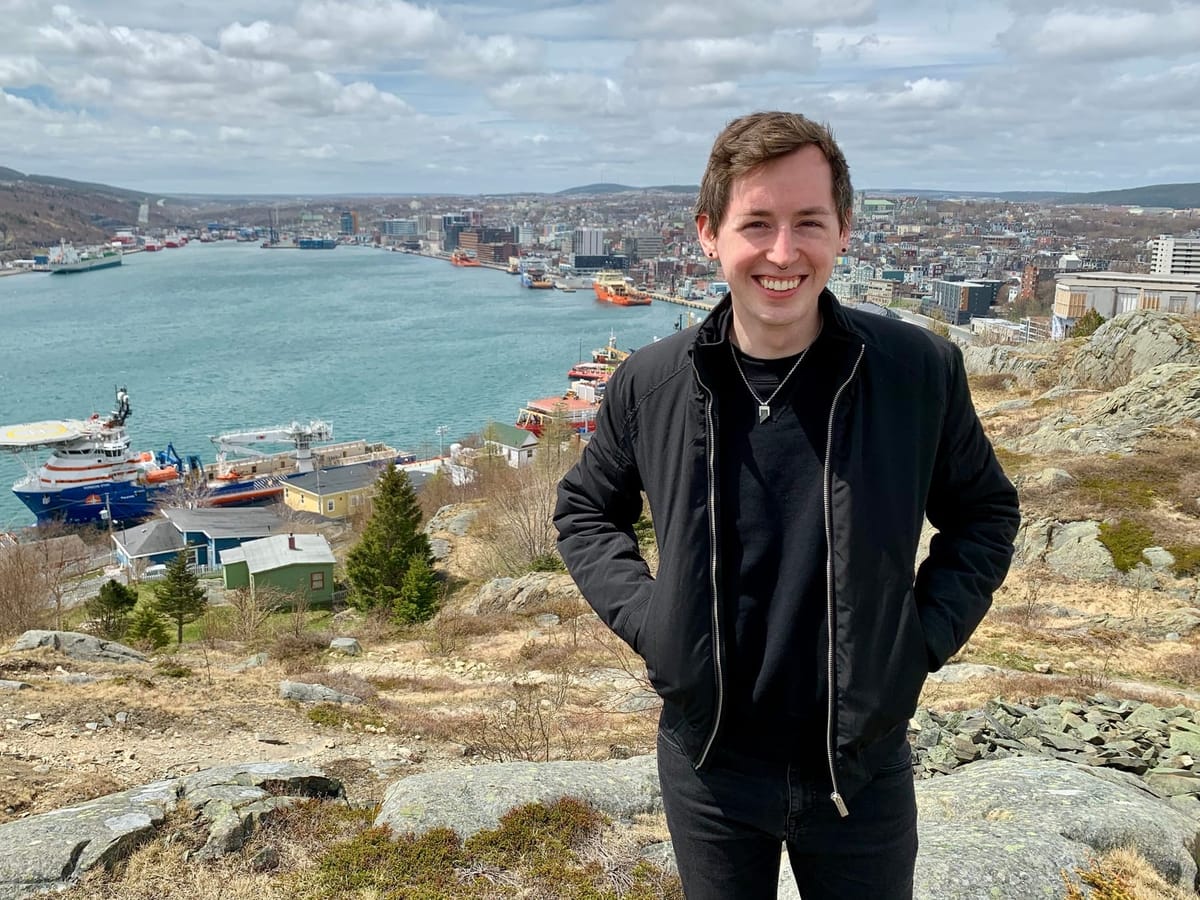
One night five years ago, my goblet was almost empty. I’d just finished hours of video calls with writers I was editing, about to log off for an evening of social “activities.” Running late to “happy hour,” I darted from my desk to the kitchen and popped the cork from a half-empty bottle of La Vieille Ferme, aka that supermarket “chicken wine.” Clutching my refilled goblet, I headed to the “castle.”
The heavy use of scare quotes should indicate nothing was “real.” I was in the pixelated 2D fortress with friends on startup Gather.Town, a retro video game-inspired platform where we moved our little characters around “rooms” and bumped into friends for “spontaneous” video chats — a clumsy but endearing way to mimic the spontaneous encounters of the house parties we missed. I invited a few castle pals to “go” to a film festival screening with me and my boyfriend, then a “rave” after that hosted by DJ D-Nice — what Crack Magazine dubbed “the queer community’s hottest new club,” aka Club Quarantine. (The New Yorker’s Jelani Cobb wrote that it was “part dance party, part social-media therapy, and a health-policy initiative cleverer than anything the government has put together.” It was also a vibe.)
It was early 2020 and Zoom had become Big Tech’s verb du jour. My tolerance for “bad” wine had increased as dramatically as my screen time. Many of us were Zooming not only to work but to drinks, conferences, panels, lectures, dances, even to an around-the-world Pride “parade” that June.
However you spent those early COVID lockdowns — whether you were Charli xcx livestreaming her rapid songwriting for the pandemic hit “How I’m Feeling Now,” the internet’s prolific critic Paris Marx starting the essential podcast on leftist tech discourse, or me, drinking too much chicken wine and dancing remotely with internet strangers — your increased time on devices almost certainly contributed to widespread Zoom fatigue.
There was a commonly expressed sentiment that digital interactions couldn’t replace in-person connection, according to a 2021 Pew Research Center survey, which found 40% of U.S. adults who video-called during the pandemic felt worn out by it. Yet the increased screen time persisted after governments phased out social distancing. Research from the University of Leeds in 2022 concluded that soaring screen time had continued at high rates in the United Kingdom post-lockdowns.
Zoom fatigue became one of many gateways to the techlash gaining momentum in the early 2020s. Even among tech’s most ardent fans, frustration with the industry was growing. Tech workers at companies once rated top employers began unionizing when a major union, the Communications Workers of America, launched the Campaign to Organize Digital Employees. While remote work had positive effects for some, the techno-optimistic spin started cracking as many of us spent more time with devices and learned firsthand about surveillance capitalism. By 2022, stock market slang "FAANG" — Facebook (now Meta), Amazon, Apple, Netflix and Google (now Alphabet) — had become synonymous with enshittification, a word coined that year by Cory Doctorow. Everything Big Tech touched was enshittified.
“No one else has so comprehensively interviewed key figures in critical tech.”
One prominent voice in this widening lane of independent criticism has long been Marx, a Canadian journalist who began writing about technology in 2015 and launched Tech Won’t Save Us in 2020. Tech Won’t Save Us was a podcast I was quickly tuning into regularly, often listening to first-year episodes with headphones on (and a few glasses of chicken wine). Marx is ESC KEY .CO’s fourth Power Lunchee. And arguably no one else has so comprehensively interviewed the key figures in critical tech. (In 2020, Marx interviewed Doctorow for an episode presciently titled “A Better Internet Requires Ending the Monopolies.”)
In episode zero, Marx announced his aims: “The goal of Tech Won’t Save Us is to be critical of the tech industry, tech companies, tech leaders and, particularly, the worldview that’s pushed out around Silicon Valley that we don’t need to worry so much about politics. We can just focus on technology and the improvement of technologies and new innovations,” he said, citing what’s been described as the Californian ideology that “puts tech at the forefront and suggests it’s our main solution.” He’s been hitting that goal weekly since, interviewing guests ranging from Timnit Gebru to Naomi Klein.
The weird thing about parasocial relationships on the internet is feeling like you already know somebody in your feed when you don’t. After five years of hearing Marx in my ears — we’d briefly interacted while I was reporting for Condé Nast’s Them about Elon Musk’s Twitter takeover in 2022 — we officially met recently on Google Meet, somewhat ironic given Marx’s current project to get off U.S. tech “as much as feasibly possible.” (Video conferencing “has proven tough,” as it remains a Big Tech-dominated space.)
Indeed, we had never lunched before. So, as we commence our luncheon, I get this uncanny sense of meeting someone who’s been perched on my shoulder for half a decade, expanding his audience’s critical imagination since our screen time collectively surged. That time-warp made the whole conceit of this somewhat unhinged profile series feel like the IRL-to-URL trends at the start of the pandemic — aptly so, as we get into the state of critical tech five years into Tech Won’t Save Us.
Marking the show’s anniversary, we chat about themes emerging across hundreds of episodes, the one guest that made Marx nervous, and how challenging it is to try and leave U.S. tech behind — and how the attempt to do so has given him hope. Plus, as a multimedia phenomenon with multiple podcasts (including the weekly System Crash tech-news show co-hosted with journalist Brian Merchant); a popular newsletter, Disconnect, that is about to leave Substack for a second time; a first book, “Road to Nowhere,” about electric vehicles, which helped him earn the title as a “Muskologist”; and a second book, “Too Much Compute,” forthcoming from Penguin Random House (about “what’s really behind the hyperscale data boom”); well, I ask him, what time do you really wake up?!
There’s only one rule to Power Lunch: we are granted the power to lunch anywhere in the world, but the Power Lunchee must pick only one place where we will virtually gather. This rule is now in effect.
🍴🍴🍴
JD: You made it! Where in the world are you right now?
PM: I’m in St. John’s, Newfoundland, on the east coast of Canada, almost as far east as you can go.
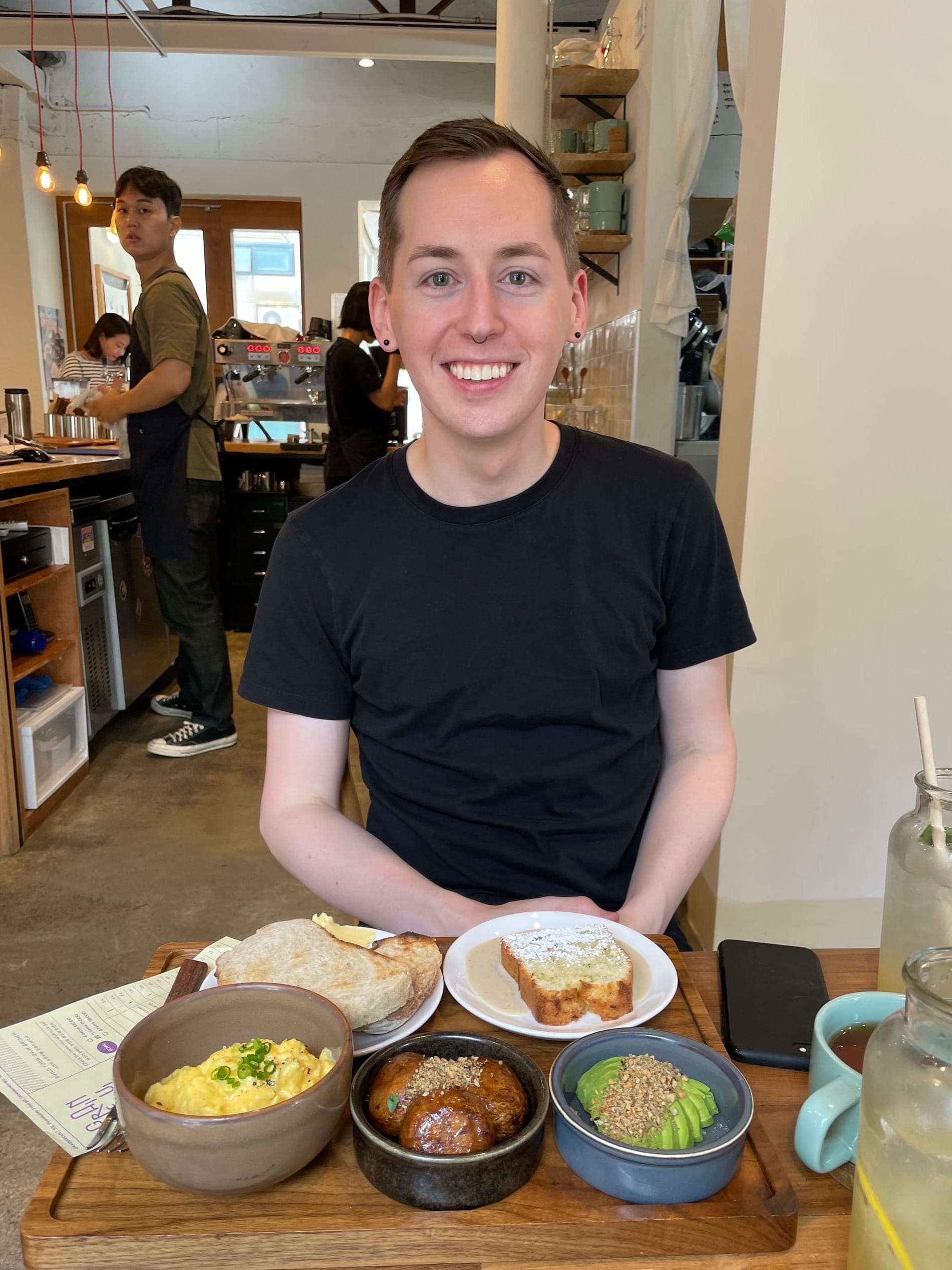
JD: I have to start by saying, I love the library-like shelves of books I see behind you. Is this real or like one of those Google Meet backgrounds?
PM: Oh no, it’s real. [laughter]
JD: I figured as much but wanted to fact-check, you know? I was on your Bookshop.org reading list earlier, and I was like, of course, Paris Marx has the best taste in critical tech — all topics I want to get into but first topic, lunch!
PM: I had to think a lot about this lunch spot question. I was like, OK, what am I doing here?
JD: That’s the power — and the pressure — of Power Lunch. We can figuratively “go” anywhere! So where did you decide?
PM: I don’t remember the name of the place — so let’s start there.
JD: Hm, I feel like this is really stretching the one rule of Power Lunch. But tell me more.
PM: There’s this spot in Hiroshima that comes to mind pretty frequently. It’s a small, hole-in-the-wall okonomiyaki place. I’m vegetarian and lactose intolerant, so I’m pretty limited with what I can eat. They actually had an option that was both vegetarian and lactose-free.
I’ve looked in North America for vegetarian, lactose-free okonomiyaki and never had any luck. I prefer the Hiroshima style to the Osaka way.
We could sit at a table, but it’s better to sit on the stools right in front of the hot surface where they’re making it and serving it up in front of you.
JD: Part of me wonders if that’s strategic, if you’re guarding it for yourself — like that travel social media trend where people won’t tell you where they go to keep places from getting overcrowded.
PM: I know where it is! I just can’t tell you the name! I’m sure if you went on TripAdvisor or Google Maps, it would be highly reviewed. Probably all the tourists go there. But it was so good!
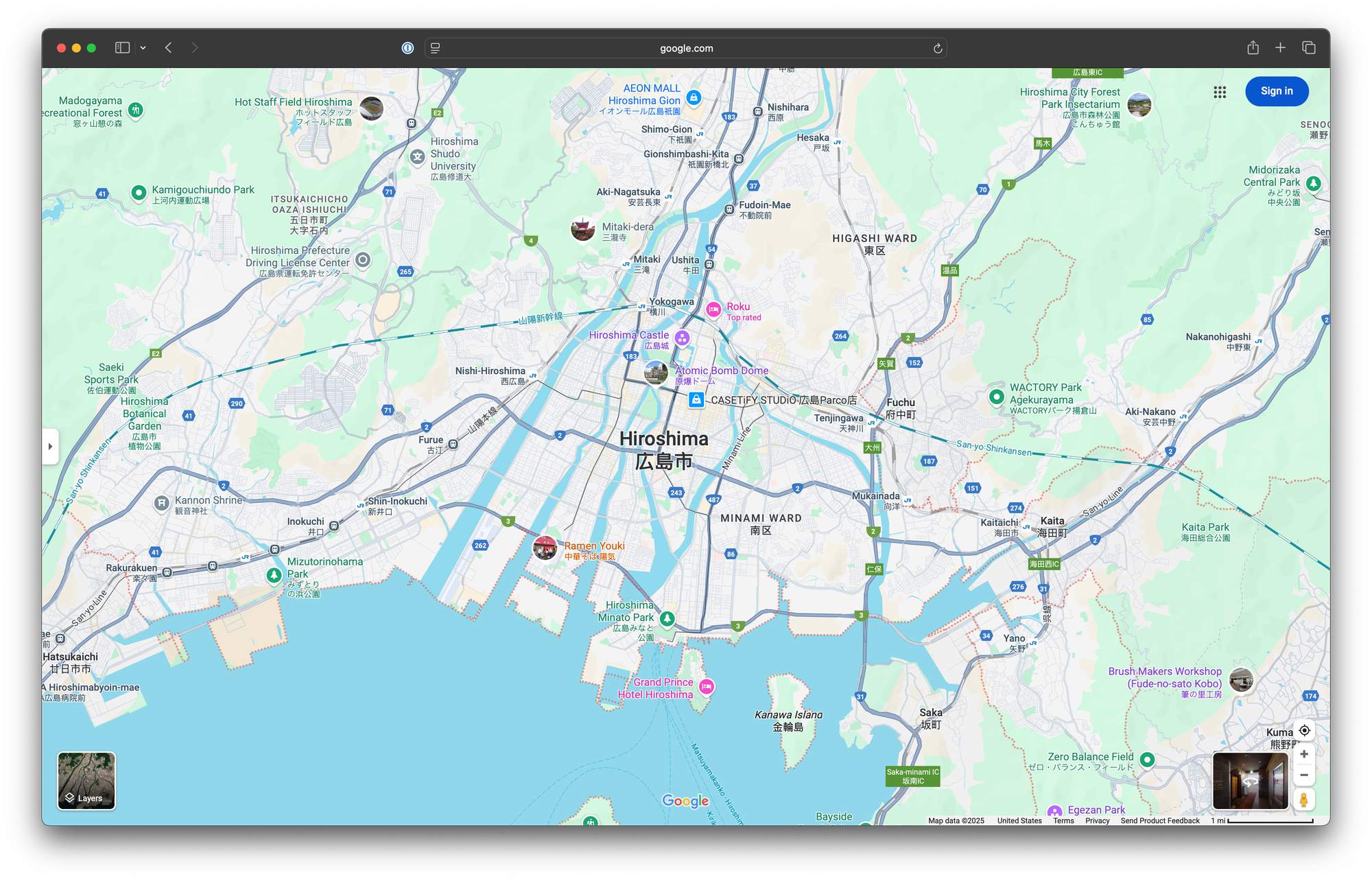
JD: OK, I’m here for the mystique! So while we’re in the undisclosed location, watching them prepare the lactose-free, vegetarian okonomiyaki right in front of us, I want to hear the behind-the-scenes story of Paris Marx, critical media extraordinaire. What motivated you to get into this space? Or, as a peak 2010s personal essayist might put it, what was your journey?
PM: I feel like it’s an unlikely thing. If we were in another time, it wouldn't have worked out. I’m from a small place on the east coast of Canada. Not a big media hub. So the chances I’d be someone speaking about these things would be pretty unlikely in the past, but one positive thing about the internet, I guess, is how it’s made it easier for people like me.
I was interested in tech from a pretty early age. My mom did computer science in university, and I’m sure that helped. Computers were around when I was young — I was born in the ’90s, so the internet was getting started.
Getting into the early 2010s, I was quite interested in cities. I started studying in university, then dropped out for a few years to travel. I was initially optimistic about technology. I was an Apple fanboy back in the day, watching the keynotes, getting excited about the next big product. It’s embarrassing to say. But in the 2010s, my optimism started to shift.
The other thing that was really a wake-up call moment for me was early in the 2010s, there were all these stories about millions of jobs being wiped out because of AI and robotics. That prompted this whole discourse around what we’d do when so many people didn’t have jobs. Were we going to need universal basic income?
Then, a few years on, we found all those jobs weren’t eliminated. This wasn’t actually happening. What we had instead was companies distracting us with this narrative of mass automation, self-driving cars taking all the truck driver and taxi driver jobs. What they actually did was roll out algorithmic management, first in companies these tech companies controlled — Amazon warehouses, Uber’s ride-hailing service. Those processes spread to many more companies over time.
So you had this narrative of full automation, which was bullshit. That allowed companies to introduce these forms of management that took power away from workers. That was really the wake-up call for me then — so OK, we always need to question what these companies are saying versus what they’re actually doing, because often they’re saying one thing but doing something else.
JD: Your journey there mirrors a lot of people’s right now. The pandemic was a turning point in many people’s views on technology. You launched your podcast at that very time, and it excited me because there haven’t been many independent venues for critical tech conversations.
How do you see the state of critical tech conversations today compared to when you started five years ago?
PM: In the latter part of the 2010s, there was what was often referred to as the techlash, where there was an awakening, to a certain degree, to what these companies were doing, fueled by the Trump campaign and allegations that Facebook had something to do with helping to get Trump elected.
A really interesting thing about the crypto boom was that you had a degree of criticism that was really unique at that time. Previous booms didn’t have as much, or as many, vocal critics and as visible criticism of what was happening. The critics were really proven right in that moment.
But I think that hype energy has been even stronger during the AI boom. We’ve seen a number of journalists who would have previously given space to critical perspectives really jump on the bandwagon of AI boosterism.
There are people who were interested in technology and went along with criticism for some time but who still really want to believe tech is going to make the world better, that there’s going to be some next big thing that’s actually good for society. They’re trying to see that in AI despite the reality not being there.
“I almost gave up the show after a few months because of that.”
JD: You recently marked five years of Tech Won’t Save Us! That’s a long time for any media project, period, but especially an independent media project. In that time, you’ve interviewed a who’s who in critical tech. What themes emerge when you think back across those conversations?
PM: One theme that really stands out is the focus on workers. The degree to which the actual work that goes into tech can be obscured, depending on what layer of the supply chain you’re looking at. We all know about the coders in Silicon Valley. We don’t often know about the people manufacturing products in China, making the chips, mining the raw materials.
Another theme is the politics of these tech billionaires and their growing impact on society. You can go back to the very early days of Tech Won’t Save Us and see I was talking about the concerning politics of figures like Elon Musk.
Very early on, I did an episode on techno-fascism in India — how tech was being used for this fascist project. It feels like things we were talking about then have really come to fruition in the past year or so. I wish more people had been on the same page with us back then.
JD: Have there been any interviews that really surprised you or made you rethink how you saw the world?
PM: Two key ones come to mind. First was December 2020, I spoke with Tim Maughan about supply chains. He’d been on container ships in Asia. He looked deeply at how supply chains work — how much is guided and managed by algorithms that are beyond not only people’s control but people’s knowledge. It’s a black box because it’s so complex, and that creates significant vulnerability to the supply chains we all depend on.
Second is more recent: I spoke with former workers from the U.S. Digital Service, which was basically taken over and dismantled to become the agency Elon Musk controlled. When we talked about their approach to developing technology in the public sector and how much that differs from the private sector, that was eye-opening.
They were saying sometimes the solution, even though it’s the U.S. Digital Service, isn’t actually new technology. They were thinking broadly about design and how to make tools accessible to people.
It was eye-opening to see how distinct developing technology in that environment was. I thought there was a lot that could be learned if we were serious about displacing the power Silicon Valley has.
JD: This next question might just apply to me! Because sometimes I’ll get someone on the phone and I’m like, wow, five minutes before I’m actually a little nervous to talk to this person for whatever reason, despite doing this hundreds of times before. I’m wondering, have there been any guests you were a little scared to interview or guests that were hard to interview for some reason?
PM: If I had to name one person, I’d say someone like Naomi Klein. When I started the show, I found doing all these interviews quite daunting. I’m kind of an anxious person, so getting on calls with these people all the time was really stressful. I almost gave up the show after a few months because of that.
I powered through, though, and now it’s fine.
Now I’m pretty used to it. I have a good grasp of the broader topic, so I don’t feel particularly nervous. But sometimes there are people I’ve looked up to for a long time, and it’s not scared, but it’s surreal — wow, I’m really talking to this person. But you’re like, “Am I going to ask the right things?” “Am I going to sound like an idiot?” It always goes off fine, but those concerns are still there.
“As the business model of journalism has changed, it has really squelched a lot of that criticism and the space for it.”
JD: Anxiety is one of those things that affects people at different points in their career in some surprising ways. I’m wondering what other barriers are there to sustaining this kind of work in an independent space. What are the barriers to sustaining something like Tech Won’t Save Us, from your point of view?
PM: When I started in 2020, if you looked at podcasting, the top charts were pretty much VCs and their shows and boosterist news podcasts — all stuff very positive about technology.
I felt there was a real opening for something else, conversations that took a different perspective. Luckily, that’s resonated with a lot of people.
In terms of challenges, obviously an independent show like this is about resources and time. I do a lot of things, so carving out time some weeks is totally fine. Other weeks, I’m like, “Where am I fitting this in?” But I still really enjoy doing it, so I make the time.
For anyone considering doing something like this, starting a podcast or whatnot, there does need to be a bit of realism about what the goals are and the actual work that is going to have to go into it at the end of the day. Sometimes, it really works out, and other times, the listenership isn’t there.
With a newsletter or some other project, the readership or whatever, eventually, you have to be honest with yourself and see whether it’s making sense. But luckily with Tech Won’t Save Us, things are going quite well. It feels like it’s going from strength to strength.
I’m going to stick around for some time yet.
If the show wasn’t as successful as it’s become and hadn’t gathered the listenership it has, maybe it wouldn’t still be operating. But luckily things are going quite well.
JD: It feels like there have been points in the history of mass media where there was more critical conversation happening. Now, in almost every domain at the moment, it feels like there’s very little appetite for genuine criticism. Are we in an age where criticism is a bit beyond the pale?
PM: Yes, I think it’s unfortunate, but I’m a bit split on this one. Part of that is the business model, as the business model of journalism has changed, it has really squelched a lot of that criticism and the space for it. Not just criticism, many other forms of journalism too — like local journalism and investigative reporting.
On the one hand, there is a lot of audience desire for criticism, especially tech criticism at this moment, seeing the relationship between the tech industry and Trump and the wider extreme right around the world. A lot of people have reacted negatively to that, people who maybe didn’t even like Trump in the past but still believed that the tech industry overall was good.
At the same time, if you look at mainstream institutions, there is some great work being done at a lot of those. But increasingly, they are being hollowed out as the revenue is not there to support it.
The other piece, of course, is that if you are reliant on advertising, and you’re relying on tech companies to buy ads, they are not going to like being criticized very much.
JD: What about the model for independent media at this moment?
PM: If you’re doing something more independent and smaller, you can find an audience interested in that thing specifically, and as long as that audience is large enough, you can do that work.
But unfortunately, there are drawbacks to a media ecosystem that’s a bunch of independent journalists or small publications and not larger publications with institutional clout and legal support if you start to run into issues.
“I am planning to get off U.S. tech as much as feasibly possible.”
JD: You recently wrote about why you’re getting off U.S. tech. Ironically, we’re on Google Meet. If you have ideas for something other than Google Meet that’s not Zoom or Teams or FaceTime, please let me know.
PM: I’m still working on the video part. That’s proven tough.
JD: What about newsletters? In January you moved your newsletter from Ghost [which hosts ESC KEY .CO, full disclosure] back to Substack, which you’d previously left. What made you make the leap back?
PM: I am planning to get off U.S. tech as much as feasibly possible, and that means reviewing everything, including the newsletter platform.
The reason I left Ghost this year is because it wasn’t working for me to bring in and maintain subscribers. On its own, it lacked important features. It seemed like a tool where basic features for people who aren’t very technical are there, but if you want to do more than basic customization, you really need technical skills. That wasn’t what I wanted to be dealing with.
So even recognizing the drawbacks of Substack as a platform and company, unfortunately, a lot of people have continued to stay on the platform. Major news organizations have launched on it. It seemed like I should give it another shot to see if I can make the newsletter work by getting more subscribers. With that said, with this whole shift with the Trump administration’s belligerence toward the world, it wasn’t greatly timed.
And now, I’m likely to leave Substack again in the next few weeks.
JD: How hard is it really to exit U.S. tech?
PM: The most difficult space is social media because in the West, we all use American platforms, and everyone we know is on those same platforms. That becomes difficult to get off. I’ve already accepted that for messaging, I’m not getting off Signal despite it being American.
But there are tons of other categories where it’s incredibly easy to get off U.S. tech. You think about email — you don’t need Outlook or Gmail. You can easily switch to Proton Mail or a whole host of options in Europe or Canada. That’s quite easy.
It depends on the category. Recently, I’ve been playing with navigation and map apps to see what the decent alternative to Google Maps is. None are going to be as good, but quite a number get pretty close.
So it is tough, but not impossible. As long as you recognize you don’t need to be an absolute purist.
You’re never going to get off everything because of how dominant these companies are.
JD: I was trying to think of a non-U.S.-based alternative to Substack that’s not Ghost.
PM: Yeah, it’s only Ghost. Beehiiv is American. That gives you an indication of what I’m looking at and how I’d make that work in a way it didn’t last time.
JD: Substack’s a lightning rod topic for readers and newsletter writers. It shows how hard it is to align values with tech platform choices.
PM: Totally. Even if I move off Substack for Ghost, I’m still reliant on Stripe underneath, which is American.
Even if you use alternate non-U.S. services, quite a number are still hosted on Amazon Web Services or Azure. The actual data center might be in Europe or Canada, but they’re using a U.S. company to host.
JD: Platforms aside, you’re prolific. I don’t want to hear another billionaire’s morning routine. I don’t really care about the productivity theater of somebody waking up at 6 a.m. or whatever.
PM: You mean, you don’t want to hear my life extension routine?!
JD, laughing: I mean, I want to hear about your output! We were just talking about the newsletter, Disconnect. You have several podcasts. You’re working on your second book at the moment. How do you do it all? What’s the Marx routine? What should we want to know about it?
PM: There’s not one quick thing that makes it all possible, other than I work a lot. I don’t have some incredible productivity regimen. I put in a lot of hours — and a lot of random hours.
I’m at a moment where I’m like, “OK, how do I reduce this?”
For me, recognizing how much of a time suck social media tends to be and how much time I can lose to these apps — if I had better control over social media, I’d be so much more productive.
But maybe that’s a fantasy I’ve created that no, it’s not all the work that’s the problem. It’s that I'm on social media too much.
JD: If I’m honest, you’re all over my Bluesky feed, which is great. Then I wonder, “When’s he writing his newsletter and book? Recording his podcasts? What time does he wake up?!”
PM: Depends. I can’t give you a specific time. Lately, I’ve been in different time zones. Sometimes I’m up really early. Other times I wake up at noon. Sometimes I go to bed early. Sometimes I’m up very late. Sometimes I don’t sleep at all. I’m not trying to pretend I have it all figured out.
JD: That sounds about like my routine, and so that’s very relatable, which I love. I think that you’re an aspirational figure in that way, so I appreciate your transparency.
PM: It’s a mess over here, too. So, yeah, definitely.
JD: You’re focused on tech criticism, but in the podcast and many episodes, you’ve been equally interested in radical and creative alternative visions for the future. Is there anything inspiring you or giving you hope right now?
PM: We live in a time when hope can feel hard to come by — not just with the political situation, but seeing how climate change is escalating and what these powerful corporate figures are doing.
The movement for digital sovereignty, which basically means reducing our collective dependence on U.S. technology companies — not running into the arms of Chinese technology companies, but actually developing local capacities in various countries — is what’s inspiring me.
Getting off U.S. tech is part of it, but it’s not about what I can do as an individual. It’s what our democratic governments that represent us are doing to make sure the systems we depend on aren’t built on U.S. tech platforms.
There’s been growing discussion about this in Europe for a while, now growing in Canada and other countries. That offers a real opportunity — not to develop another version of Silicon Valley in Canada and Paris and London, but to look at the foundations of the model tech development has been built on for the past three decades. To question whether that’s really working for us and delivering the benefits companies have long claimed.
That’s why that conversation with workers from the U.S. Digital Service really stood out to me. It made clear that another way of developing technology isn’t just possible, but does exist. If we had more public funding for technology, more recognition that we can have public institutions that develop technology for the public good not focused on how they’re going to sell it or make some incredible revenue stream to get investors excited.
For me, if I see any hope toward developing something different with resources to really challenge Silicon Valley, it’s in those types of conversations.
🍴🍴🍴
JD: Dessert is always a great idea, right?
PM: Yeah, this is difficult, especially for me. Can we jump continents?
JD: Since you didn’t name a restaurant, I suspect it’s fine! Let me check with the lone person who sets the rule for Power Lunch [...] OK, yeah, we can go anywhere else for dessert!
PM: Then we’re probably going to get some nice sorbet somewhere in Rome or Milan. A walk around, some nice architecture. We’re going to the other side of the world, but that’s my life going through different time zones.
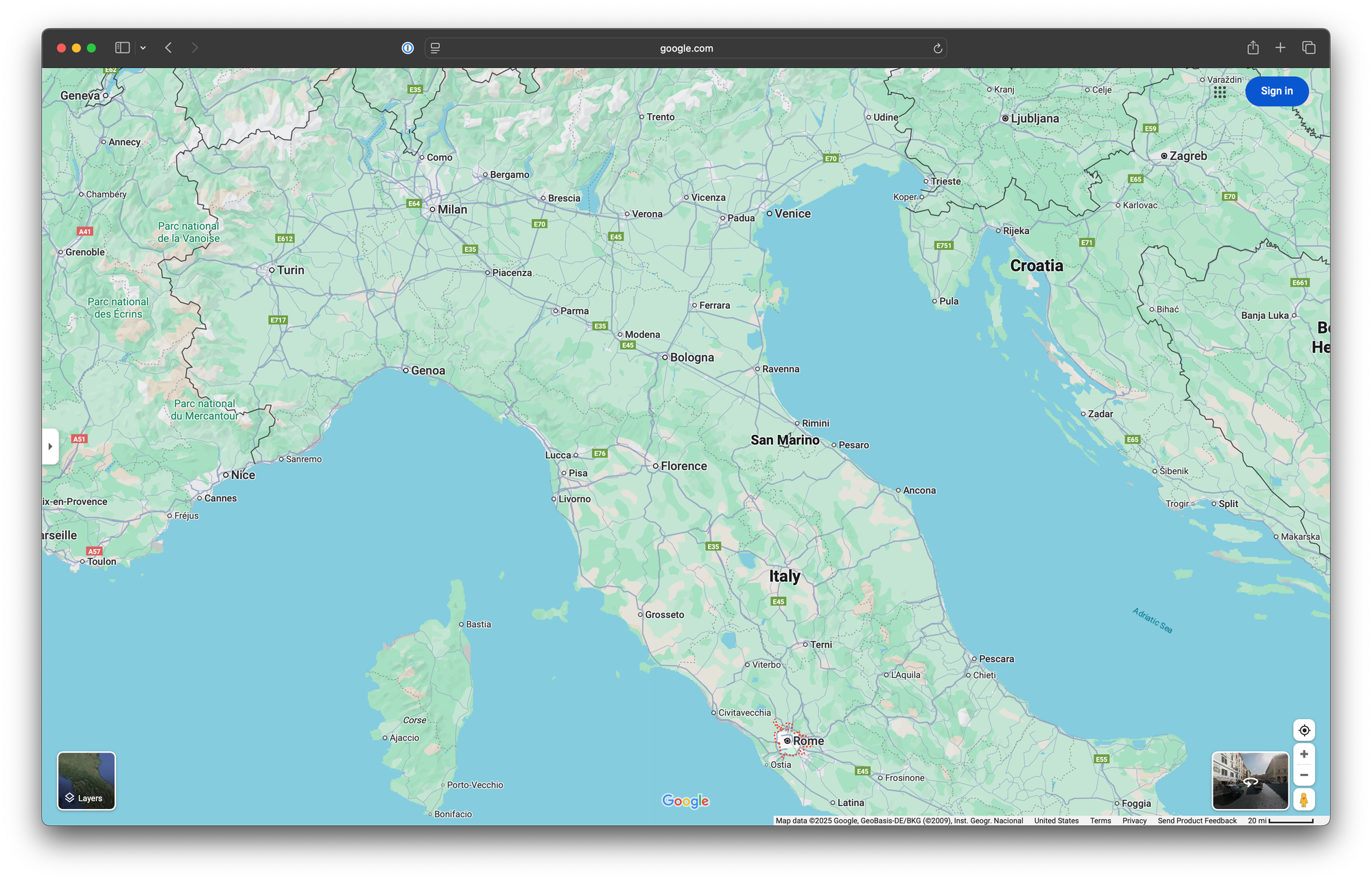
JD: I mean, we managed four time zones (me in London, you in Newfoundland, then Japan and Italy) in one lunch conversation — which feels about right for someone who’s spent five years tracking the global reach of Silicon Valley’s influence.
